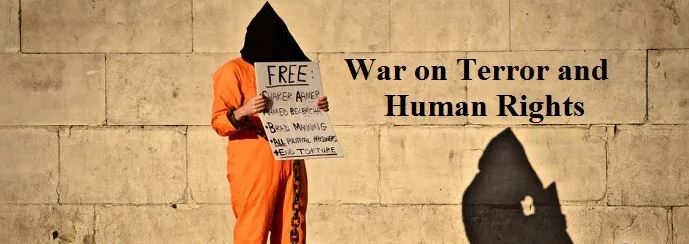Assessment of the United Kingdoms use of Diplomatic Assurances against Torture in the War on Terror (2018)
Terrorism, as a transnational crime, poses many difficulties for States in the War on Terror. For countries such as the United Kingdom, whose compliance with International Human Rights obligations is not only largely unblemished but also seen as a tool of diplomatic necessity, the removal of dangerous individuals from within their jurisdiction frequently gives rise to a controversial balancing act.
In order for them to protect their own population, and deny terrorists who often flee across international borders a safe-haven within their territory these States must necessarily, and sometimes unwillingly, cooperate with foreign Governments who have sufficient evidence to bring those responsible to justice. This cooperation may often be needed even when there is a real and apparent risk that the receiving State may torture those extradited, thereby damaging the human rights reputation of the sending State.
The return, or extradition as it is formally termed, of individuals from one State to another, is a matter which is heavily regulated under international law. The 1951 Refugee Convention for example, prohibits in Article 33(1) the return of refugees to a country where he or she is likely to face persecution or torture. This safeguard, known as the Non-Refoulement Principle, is particularly significant when applied to the transfer of terrorist suspects facing trial in a foreign country which is widely acknowledged for systematically abusing human rights.
- 10,000 words – 42 pages in length
- Excellent use of literature
- Excellent analysis of subject area
- Well written throughout
- Ideal for international law students
1 – The Application of Diplomatic Assurances against Torture
The Historical Use of Diplomatic Assurances
Defining Diplomatic Assurances of the United Kingdom
The Law Governing the Use of Diplomatic Assurances
Removing the Real Risk of Torture
Is there a Real Risk of Torture or other Cruel, Inhuman or Degrading Treatment or Punishment Occurring?
Does the General Human Rights Situation in the Receiving State Remove the Possibility of Removing the Real Risk?
Can the Diplomatic Assurances Remove this Risk?
2 – Addressing Key Criticism of the Use of Diplomatic Assurances
Diplomatic Assurances as a Circumvention of the Non-Refoulement Principle?
Problems Facing Post-Return Monitoring and the Detection of Torture
Use of Sophisticated Methods of Torture
Unwillingness of the Captive to Admit Torture
Issue of Selecting Monitors
Problems Facing the Enforcement of Diplomatic Assurances
Diplomatic and Political Enforceability of Diplomatic Assurances
Enforcement of International Human Rights Law
3 – Diplomatic Assurances of the United Kingdom
Analysis of the United Kingdoms Post-Return Monitoring Agreements
The UK’s Assurances as a Deterrent to Torture
Diplomatic Assurances of the United Kingdom as Treaties
The Form of the United Kingdoms Diplomatic Assurances
An international agreement
Governed by international law – An Issue of Intent?
Application of Article 53 of the Vienna Convention
Diplomatic Assurances of the United Kingdom as Legally Binding Treaties under International Law
Conclusion
Bibliography

